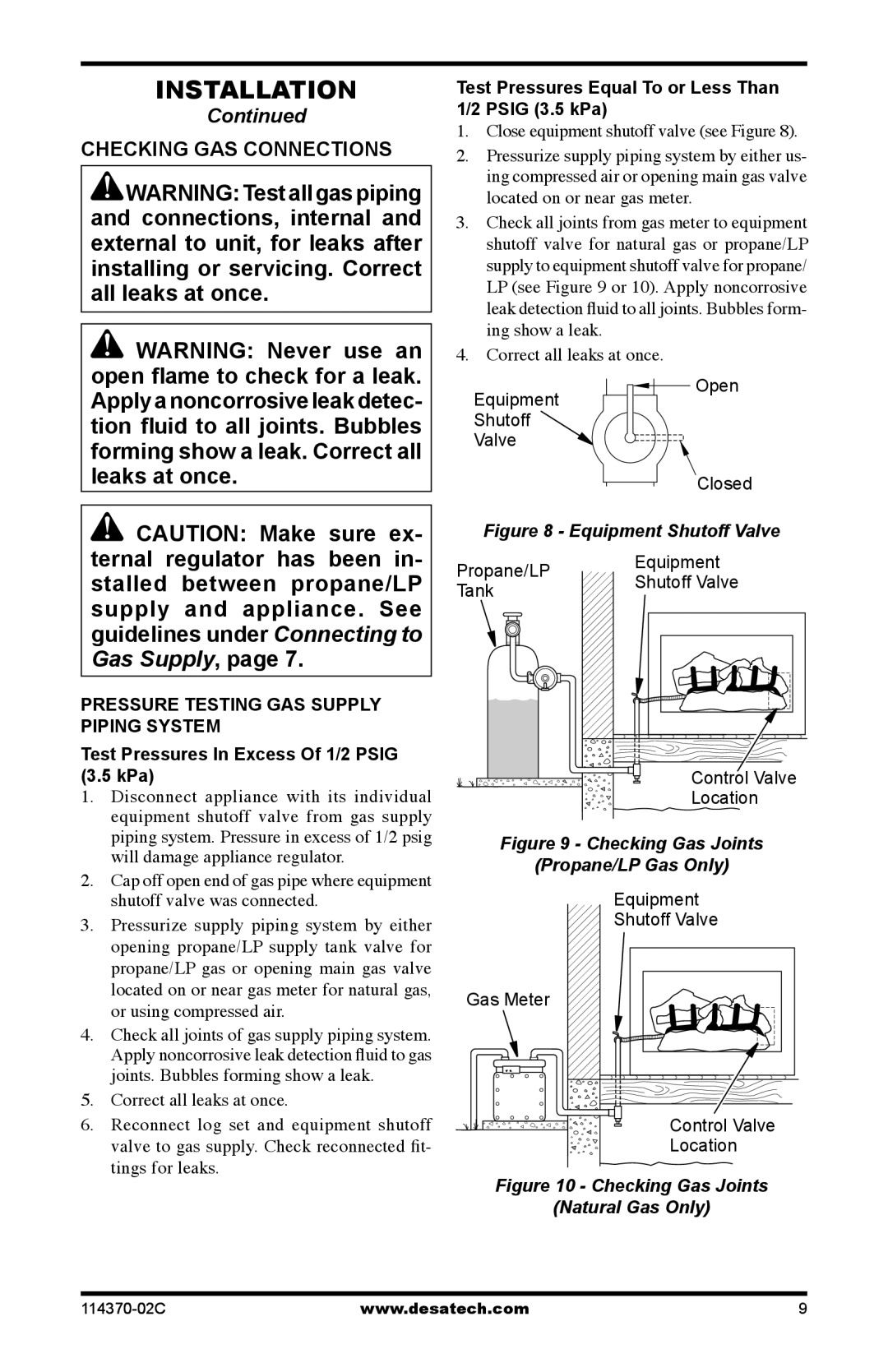
Installation
Continued
CHECKING GAS CONNECTIONS
![]() WARNING: Test all gas piping and connections, internal and external to unit, for leaks after installing or servicing. Correct all leaks at once.
WARNING: Test all gas piping and connections, internal and external to unit, for leaks after installing or servicing. Correct all leaks at once.
![]() WARNING: Never use an open flame to check for a leak.
WARNING: Never use an open flame to check for a leak.
Test Pressures Equal To or Less Than
1/2 PSIG (3.5 kPa)
1. Close equipment shutoff valve (see Figure 8).
2. Pressurize supply piping system by either us- ing compressed air or opening main gas valve located on or near gas meter.
3. Check all joints from gas meter to equipment shutoff valve for natural gas or propane/LP supply to equipment shutoff valve for propane/ LP (see Figure 9 or 10). Apply noncorrosive leak detection fluid to all joints. Bubbles form- ing show a leak.
4. Correct all leaks at once.
Apply a noncorrosive leak detec- tion fluid to all joints. Bubbles forming show a leak. Correct all leaks at once.
Equipment
Shutoff
Valve
Open
Closed
![]() CAUTION: Make sure ex-
CAUTION: Make sure ex-
Figure 8 - Equipment Shutoff Valve
ternal regulator has been in- stalled between propane/LP supply and appliance. See guidelines under Connecting to Gas Supply, page 7.
Pressure Testing Gas Supply
Piping System
Test Pressures In Excess Of 1/2 PSIG
(3.5 kPa)
1. Disconnect appliance with its individual equipment shutoff valve from gas supply piping system. Pressure in excess of 1/2 psig
Propane/LP Tank
Equipment |
Shutoff Valve |
Control Valve |
Location |
will damage appliance regulator.
2. Cap off open end of gas pipe where equipment shutoff valve was connected.
3. Pressurize supply piping system by either opening propane/LP supply tank valve for propane/LP gas or opening main gas valve located on or near gas meter for natural gas, or using compressed air.
4. Check all joints of gas supply piping system. Apply noncorrosive leak detection fluid to gas joints. Bubbles forming show a leak.
5. Correct all leaks at once.
6. Reconnect log set and equipment shutoff valve to gas supply. Check reconnected fit- tings for leaks.
Figure 9 - Checking Gas Joints
(Propane/LP Gas Only)
Equipment
Shutoff Valve
Gas Meter
Control Valve
Location
